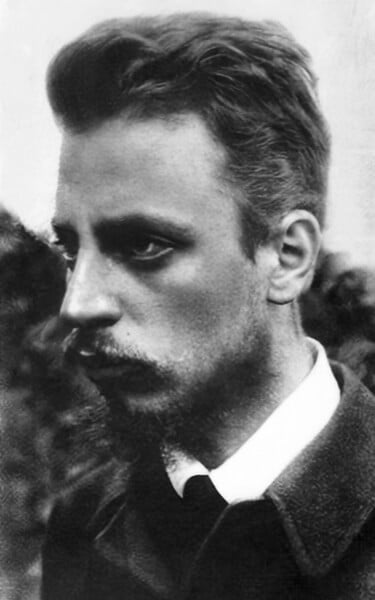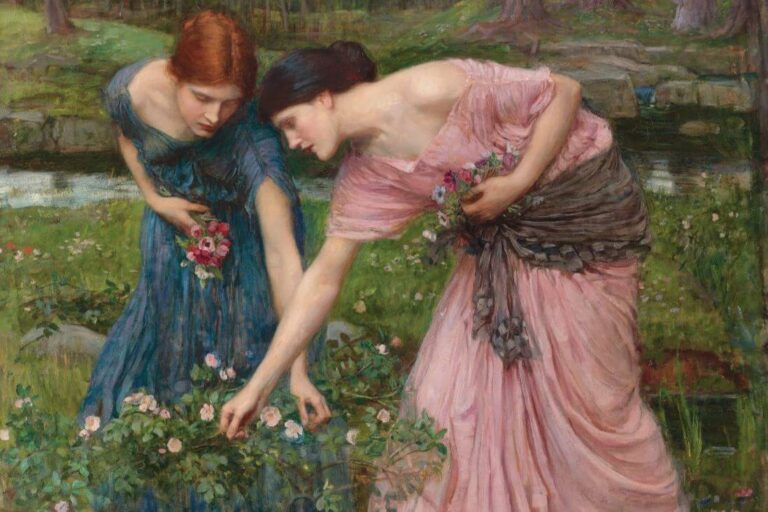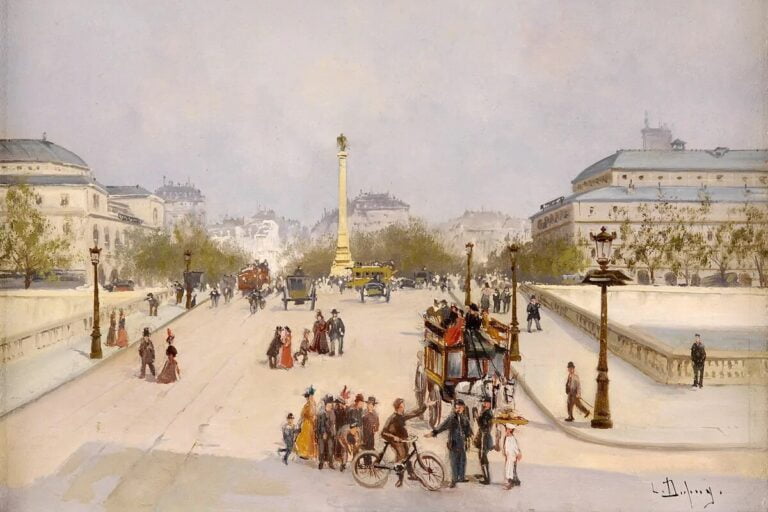Sometimes you just read something that immediately hits you, something so enchanting in its lush and swirling poetry, so beguiling in its sonorous and colourful language, that it can make you forget the world around you. Dancing on the rhythm of its resonating rhymes, you can almost taste the words on your lips, savouring them one by one. A poem that just hit me the first time I read it is What Will You Do by the Austrian poet and novelist Rainer Maria Rilke (1875-1926).
In the poem, Rilke addresses none other than God himself. In desperation and in doubt, he asks what God will do upon his death. Desperate he may be, his attitude towards God is ambivalent. Even though he challenges God’s authority and autonomy, by stating that with him God will lose his purpose, he still begs his creator to comfort him in his trembling fear of death and the great unknown. It is this deeply human fear and feeling of doubt so eloquently expressed by Rilke that never fails to fascinate me.
We cannot fathom a world without us, we cannot grasp what it means to die, and we cannot even begin to understand what it means not to be. We attribute meaning to the world around us, but what happens when we cease to be? The universe only exists as long as we are there to construct it in our minds. Thus, Rilke’s search for God is just as much the search for the self. He is begging for meaning, but he will have to be his own creator.
Was wirst du tun, Gott, wenn ich sterbe?
Ich bin dein Krug (wenn ich zerscherbe?)
Ich bin dein Trank (wenn ich verderbe?)
Bin dein Gewand und dein Gewerbe,
mit mir verlierst du deinen Sinn.
Nach mir hast du kein Haus, darin
dich Worte, nah und warm, begrüßen.
Es fällt von deinen müden Füßen
die Samtsandale, die ich bin.
Dein großer Mantel lässt dich los.
Dein Blick, den ich mit meiner Wange
warm, wie mit einem Pfühl, empfange,
wird kommen, wird mich suchen, lange —
und legt beim Sonnenuntergange
sich fremden Steinen in den Schoß.
Was wirst du tun, Gott? Ich bin bange.
Rainer Maria Rilke (from ‘The Book of Hours’)
What will you do, God, when I die?
I am your jar (if cracked, I lie?)
Your well-spring (if the well go dry?)
I am your craft, your vesture I —
You lose your purport, losing me.
When I go, your cold house will be
Empty of words that made it sweet.
I am the sandals your bare feet
Will seek and long for, wearily.
Your cloak will fall from aching bones.
Your glance, that my warm cheeks have cheered
As with a cushion long endeared,
Will wonder at a loss so weird;
And, when the sun has disappeared,
Lie in the lap of alien stones.
What will you do, God? I am feared.
Translation by B. Deutsch and A. Yarmolinsky




